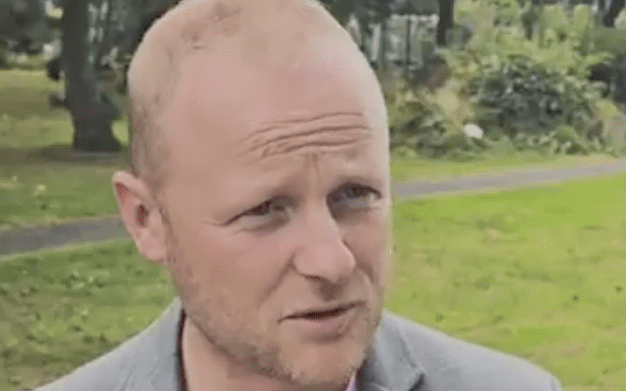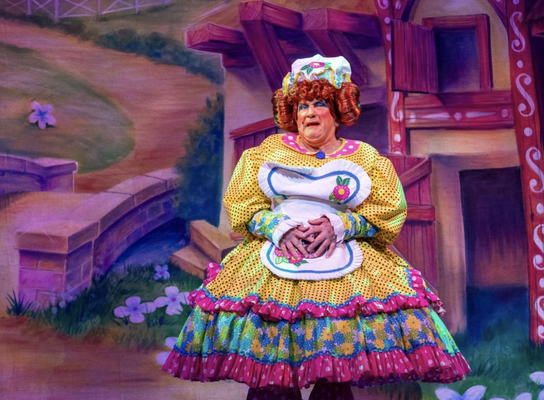THE victory of Gerry Adams in his libel case against BBCNI could be the best thing that could happen to Ormeau Avenue, if they could but bring themselves to acknowledge it.
I was at one with BBCNI director Adam Smyth when he said the implications of a jury awarding €100,000 to Adams would be “profound”, but I suspect we diverge sharply on what those profound implications will or should be. For me, the profound implications will be that the force field of fear and apprehension that the BBC’s bottomless legal fighting fund places around its journalism has been cracked, if not shattered. And if this blow to that unique and deeply unfair BBC advantage means the corporation looks harder at its journalism, that’s going to mean a win all round.
RESPONSE: Surrounded by colleagues, BBCNI director Adam Smyth speaks to the media after the Adams verdict
In the torrent of vein-popping anger and incomprehension that the verdict has released, you will find nothing about the financial risk – as distinct from the reputational one – that Adams took in deciding to take BBCNI all the way. He didn’t only bet the house, he bet the garden shed and the gazebo. You can believe if you want that Sinn Féin would have picked up the eye-wateringly vast tab for him, but of course they wouldn’t have; they couldn’t have. Instead, Adams would have been left to ponder at the age of 76 the blasted debris of his life’s finances while all around him his enemies were freed up to hurl allegations which their fear of m’learned friends had previously prevented them from voicing (and now still prevents them from voicing).
Contrast that to the BBC protagonists who were, to use a Las Vegas term, playing with House money. There’s not a single management figure, not a single journalist, who stood to lose a penny. Their sleepless nights, if they had any, were not brought about by fear of losing their houses – home or holiday – because that fear never existed. No-one's pretending that a blow to your reputation is going to do anything but hurt, but losing the roof over your family's head is a distinctly more alarming contingency.
Not having a financial dog in the fight has, perhaps inevitably, led thus far to a distinct lack of reflection where it's needed. The BBCNI statements made in the wake of the Friday morning verdict, for instance, would have convinced anyone just tuning in that Team Beeb were in the middle of a victory lap. In particular, their name-checking of the roster of witnesses called in to dismantle Adams’ reputation made it clear that BBCNI felt the choice was inspired, when in fact it was catastrophic. But they weren’t talking to me on the street outside the court, I only heard them talking to themselves. I heard them talking from a bubble wherein their witnesses are moral royalty before whom a Dublin jury inexplicably and tragically refused to kneel. I heard them praising for their diligence a jury which had just exploded a bomb under their claim of careful and responsible journalism. I heard them talking in a city, on an island, that BBCNI just doesn’t understand.
Where does BBCNI go from here as it faces into the future after a verdict that simply couldn’t have been any worse? Five questions were asked of the jury and the answers were one matador’s sword after another in the neck of the Ormeau Avenue bull. But two in particular have left gaping wounds that urgently need dressed: BBCNI had not been reasonable, and it had not acted in good faith.
Of course the BBC can plough on as if nothing has happened, and there's every chance it will; it can pretend that the loser here is all our journalism and not just the BBC’s. But if that is to be the response, BBCNI will be repeating the mistakes that led to its Four Courts downfall. Seven hours after the verdict, former senior BBCNI figure Don Anderson departed from Adam Smyth’s gloomy prognosis for the profession when he told Evening Extra that the verdict had changed nothing. The legal goalposts, he said, had not been moved by the jury’s decision; rather, they remained firmly rooted in the same place. He was right, and his successors would do well to heed his words.
What has changed, though, is how BBCNI is viewed in the wake of this libel verdict. To paraphrase a memorable line from the movie City Slickers, if defeat were people this would be China. It’s not a councillor defaming somebody on Twitter eight cans in at two in the morning and later agreeing to give a grand to the Cats’ Protection League. It’s the United Kingdom’s biggest, most prestigious and wealthiest news outlet losing – and losing spectacularly – to the world’s most famous Irish republican.
Regaining that much lost authority demands a BBCNI response almost – but not quite – as gasp-inducing as Friday’s verdict.






